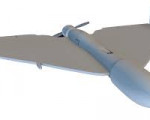
NASA's Secret Project on Human Hibernation
by.
Hendrikus Franz Josef, M.Si,
(International Relations Observer, CEO The
https://www.youtube.com/@thehendrikuscenter2794)
NASA, the
Hibernation, or the ability to enter a state of deep sleep, has been observed in various animals for centuries. In recent years, scientists have made significant progress in understanding the biological processes that allow animals to hibernate. This knowledge has led to the development of medical techniques that can induce hibernation in humans, albeit for a limited time.
NASA's secret project aims to take this technology to the next level, by developing a process that can put humans into hibernation for extended periods. The ultimate goal is to make long-term space travel more feasible by allowing astronauts to hibernate during the journey. This would not only reduce the amount of food and other resources needed for the trip but also minimize the risks associated with prolonged exposure to zero gravity.
While the project is still in its early stages, NASA has already made significant progress. In 2019, the agency awarded a grant to a team of researchers from the
NASA's project on human hibernation has far-reaching implications beyond space travel. The technology could be used to put patients with life-threatening injuries or illnesses into hibernation, giving doctors more time to treat them. It could also be used to slow down the aging process, as hibernation has been shown to have anti-aging effects in animals.
However, there are also significant challenges associated with inducing hibernation in humans. One major concern is the potential for damage to the brain and other organs during the process. Hibernating animals have developed biological mechanisms to protect their organs from damage, but it is unclear if these mechanisms will work in humans. Another challenge is the need for careful monitoring of the hibernating individual's vital signs to ensure that they do not enter a dangerous state of hypothermia or cardiac arrest.
Despite these challenges, NASA's project on human hibernation holds great promise for the future of space travel and medical science. If successful, it could make long-term space missions, such as a journey to Mars, a reality. It could also provide a new tool for medical professionals to treat life-threatening conditions and slow down the aging process. As with any groundbreaking project, there are risks and uncertainties, but the potential benefits are too significant to ignore. NASA's project on human hibernation is a bold and visionary step forward, and it will be exciting to see where it leads in the years to come.
Opini Lainnya
 Singapore : The Fine City, Fine Library
Singapore : The Fine City, Fine Library
Singapore: The Fine city demikian semboyan negara dengan julukan negeri singa itu, dan memang benar, menjejakkan kaki untuk...
 The Collapse of the Petro Dollar
The Collapse of the Petro Dollar
The Collapse of the Petro Dollar by. Hendrikus Franz Josef, M.Si, (International Relations Observer, CEO The Hendrikus ...
 Russia Threatens to Blow Up ICC with Missiles
Russia Threatens to Blow Up ICC with Missiles
Russia Threatens to Blow Up ICC with Missiles by. Hendrikus Franz Josef, M.Si\ (International Relations Observer, CEO The...
 Iranian Shahed-136 Drone Technology
Iranian Shahed-136 Drone Technology
Iranian Shahed-136 Drone Technology by: Hendrikus Franz Josef, M.Si\ (International Relations Observer, CEO The Hendrikus...

 Penyerahan Buku KCKR dari Lintang Pustaka Utama
Penyerahan Buku KCKR dari Lintang Pustaka Utama